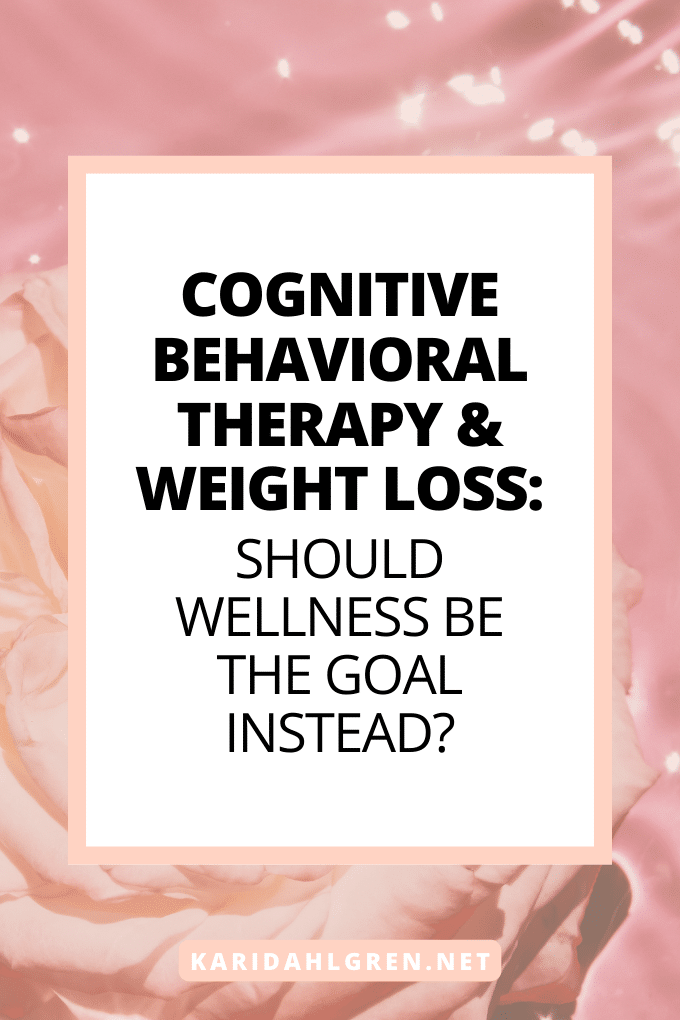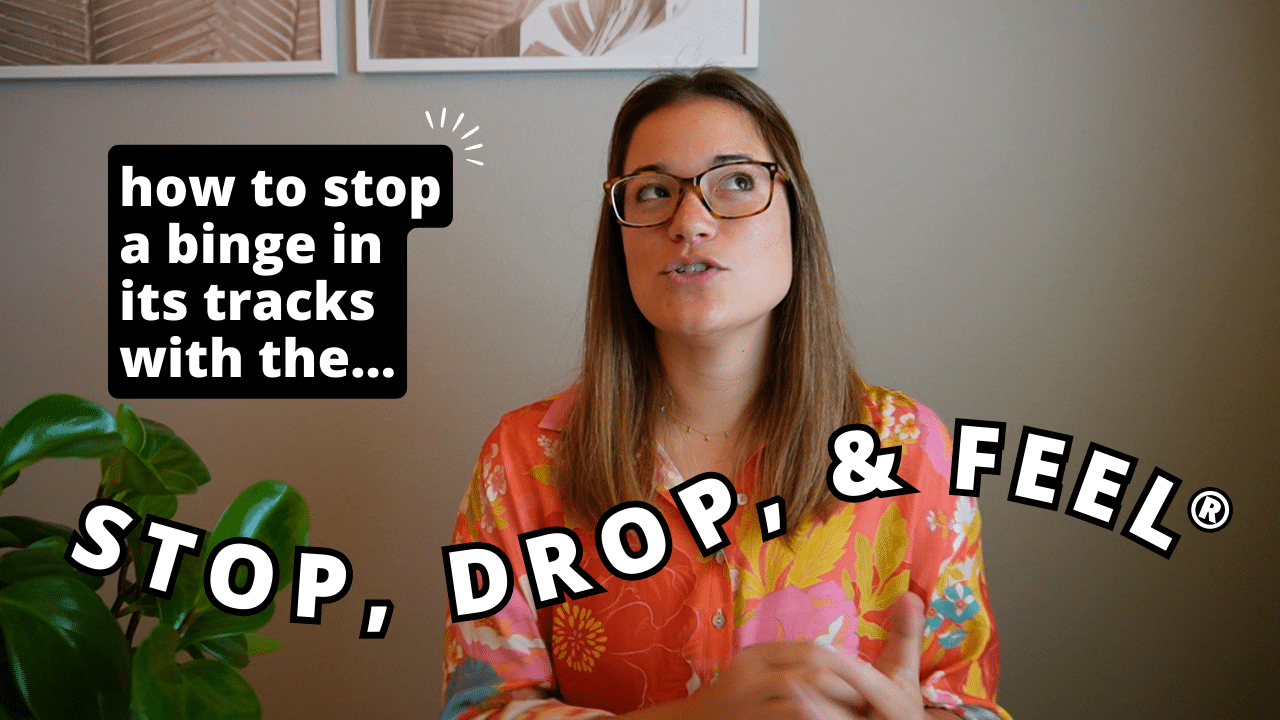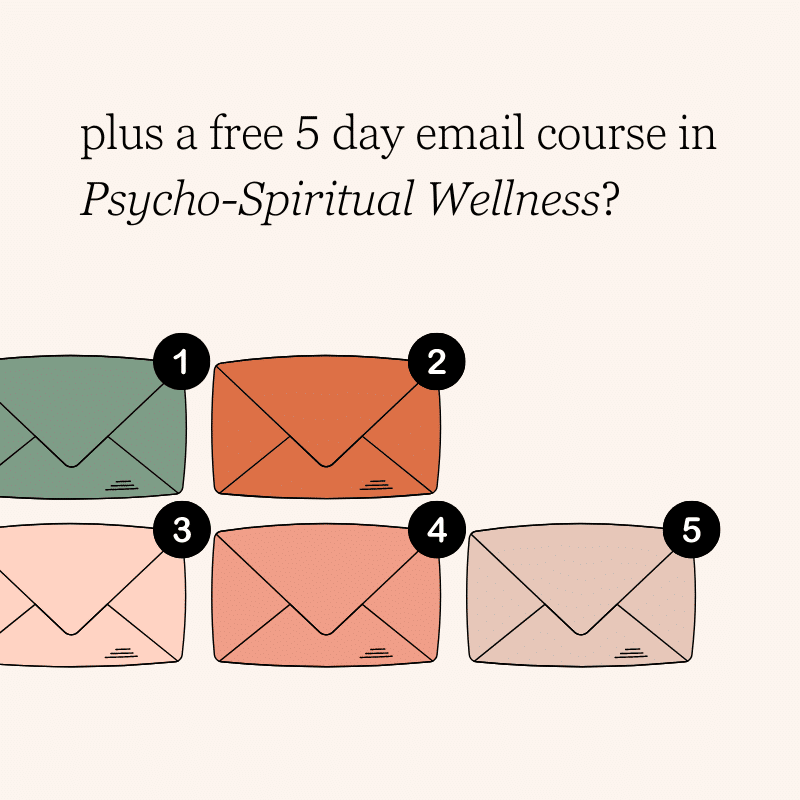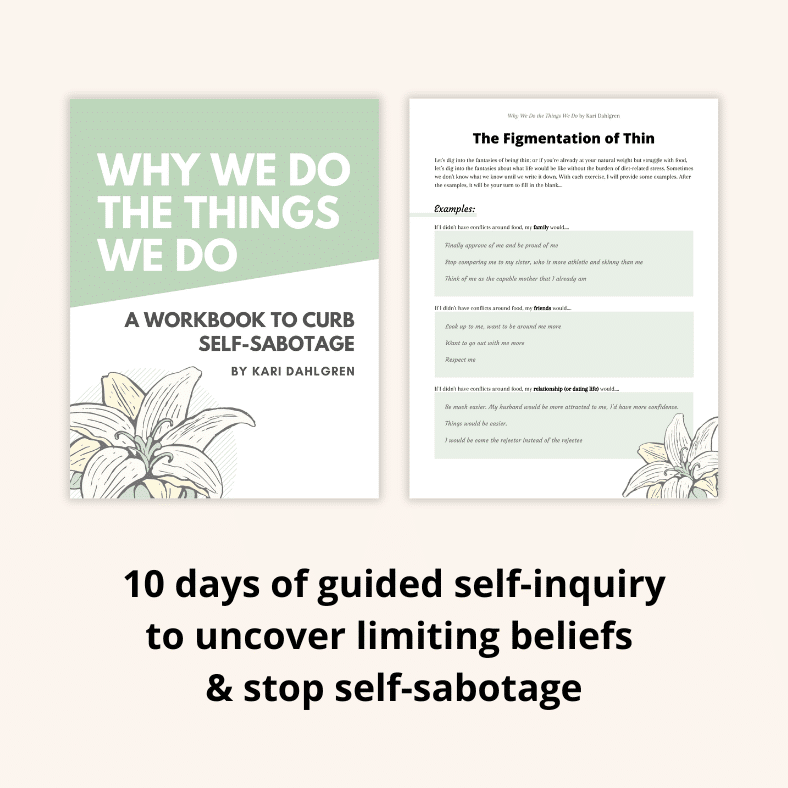
Can you use CBT for weight loss? The short answer is yes, you can use almost anything to lose weight. The bigger questions are: should you use CBT for weight loss, and is it sustainable?
Cognitive Behavioral Therapy is a highly effective form of therapy proven to help with a wide range of mental health issues. Research also shows that it may help with weight loss, at least in the short term. But is short-term weight loss what you want?
The studies on CBT for weight loss are mixed, and you’re about to discover why this isn’t bad news. Instead, it’s a helpful redirection that places the emphasis on the many other benefits that CBT has to offer, including but not limited to improved mental and physical health.
This article unpacks the research, strategies, and real-life applications of CBT. Whether you decide to use CBT for weight loss or well-being, I hope you gain a better understanding of this effective form of therapy and why it deserves a place in your wellness toolkit.
What Is Cognitive Behavioral Therapy?
Cognitive Behavioral Therapy (CBT) is a form of psychological treatment that has been demonstrated to be effective for a range of mental health issues. According to StatPearls, a continuously updated collection of peer-reviewed articles, CBT is found to be effective for depression, anxiety disorders, alcohol and drug use problems, marital problems, eating disorders, and severe mental illness.[1]
In Cognitive Behavioral Therapy, therapists and clients work together to identify and understand problems in terms of the relationship between thoughts, feelings, and behaviors. CBT involves identifying and changing thought patterns that have a negative influence on behavior and emotions.
The fundamental principles of CBT rest on the notion that our thoughts and perceptions influence our behavior. Feeling distressed, in many cases, is a result of maladaptive thoughts and beliefs.
By addressing these cognitive distortions—such as overgeneralizing, catastrophizing, or black-and-white thinking—and reframing them, CBT promotes more realistic and effective thoughts. Ideally, this empowers us to act in ways that are more conducive to personal well-being.
CBT for Weight Loss: What Do the Studies Say?
Cognitive Behavioral Therapy is well-regarded for its effectiveness in treating mental health issues and is increasingly recognized as a valuable tool for weight management.
One study, published in the European Journal of Clinical Nutrition, explored CBT in the context of weight maintenance rather than initial weight loss. Researchers followed women who had already lost weight and found that those who engaged in CBT were not only more successful at maintaining their weight but also continued to adopt healthier habits.[2] They ate better, moved more, and generally maintained their new weight more effectively than those who didn’t use CBT strategies.
However, it’s important to note that this study tracked participants for only 24 weeks, which is a relatively short period when considering the long-term challenges of weight management. The ineffectiveness of dieting is often demonstrated over the course of years, not weeks.
For instance, a study published in Obesity Reviews found that one-third to two-thirds of weight lost is typically regained within a year and almost all weight is regained within 5 years; and one-third of dieters regain more weight than they lost.[3]
Therefore, while the 24-week findings are promising, they may not fully capture the long-term implications of using CBT for weight maintenance. A longer-term study, potentially spanning several years, would be more indicative of CBT’s effectiveness in this area.
Why It Might Not Help to Focus on Weight Loss
Next, let’s explore a study published in the journal Psychology Research and Behavior Management that examines CBT for weight loss, which states the following:[4]
Cognitive behavioral therapy (CBT) is traditionally recognized as the best established treatment for binge eating disorder and the most preferred intervention for obesity, and could be considered as the first-line treatment among psychological approaches, especially in a long-term perspective; however, it does not necessarily produce a successful weight loss.
Isn’t this interesting? On one hand, CBT is identified as an ideal treatment for binge eating disorder and preferred intervention for managing obesity, and yet it does not necessarily lead to weight loss. This might sound discouraging for those seeking weight loss, but it actually steers us toward a more holistic understanding of health.
CBT’s strength lies not in its capacity for driving weight loss but in improving mental health and modifying unhelpful thoughts. Such improvements can significantly enhance overall well-being, even if they do not always result in weight loss.
Just as BMI is a poor metric of health, weight loss alone is not always the best indicator of improved health. For instance, if someone struggles with body image, fueled by the societal ‘thin ideal,’ CBT can help address and alleviate these destructive thought patterns. This, in turn, can reduce behaviors like binge eating. While this may not directly lead to weight loss, it has clear benefits for physical and mental health.
How to Apply CBT Principles to Heal Your Relationship with Food
Understanding and improving your relationship with food involves much more than following dieting rules or even participating in CBT just to lose weight. Instead, it requires a deep dive into the psychological aspects of eating.
Rather than focusing solely on what and how much we eat, CBT encourages us to explore why we eat the way we do and how we can change our eating behaviors by addressing our thoughts and emotions.
Here are some helpful tips inspired by CBT for healing your relationship with food:
- Cognitive Behavioral Therapy: Of course, CBT itself is a helpful tool! Collaborating with a therapist trained in CBT can greatly enhance your journey towards a healthier relationship with food. A therapist can provide personalized guidance, help you navigate challenges, and offer support as you apply CBT techniques in daily life.
- Giving Up Dieting: The premise of CBT is replacing unhelpful thoughts with helpful ones. Often, dieting perpetuates feelings of deprivation that fuels constant or even obsessive thoughts about food. Instead of using thought work to address those thoughts, you can consider giving up dieting altogether to alleviate the fixation with food.
- Follow Internal Cues Instead of External Rules: Tuning into your body’s natural hunger and fullness signals aligns with CBT principles of self-monitoring and self-awareness. This means eating when you’re truly hungry and stopping when you’re comfortably full, rather than eating according to a prescribed schedule or set of rules.
- Let Your Weight Regulate Itself: Letting go of the association between CBT and weight loss can be challenging. One step that can help is embracing set point weight theory, which supports the notion that your body is capable of regulating itself and maintaining an optimal weight when you listen to it.
- Address Compulsive Eating with the Stop, Drop, & Feel®️: This is my trademark tool for stopping compulsive eating in a way that aligns with CBT principles. It involves stopping when you feel the urge to eat beyond fullness, dropping into your body to notice any sensations or emotions, and feeling those emotions. This helps build the trait of resilience and the skill of emotional tolerance, your ability to withstand discomfort without getting swept into compulsion.

- Cognitive Restructuring: This technique involves identifying and changing irrational or maladaptive thoughts that contribute to stress and negative emotions. By questioning the validity of such thoughts and replacing them with more balanced, realistic ones, individuals can reduce emotional distress and enhance their ability to handle stressful situations.
- CBT-Inspired Workbooks: Engage with exercises that encourage you to identify and reframe unhelpful thoughts or beliefs. For instance, my bestselling digital workbook, Why We Do the Things We Do, helps you uncover limiting beliefs around food and body image that you may not be fully aware of. In order to apply CBT techniques, you need to know what you’re working with, and Why We Do the Things We Do helps reveal the limiting beliefs that need restructuring.
- Regular Reflection and Adjustment: Keep a journal of your eating habits, emotions, and thoughts. If this reminds you of old dieting programs where you had to track everything you ate, skip it. If you’re a fan of journaling, keeping track of your food and mood can provide helpful insight.
By shifting focus from strict dieting to understanding and modifying your thought patterns and emotional responses, CBT helps create a sustainable, healthy relationship with food. Whether your goal is weight loss or well-being, delving into the inner work is sure to make a positive impact on your life.
CBT for Weight Loss and/or Well-Being
While CBT can support weight loss efforts, the true essence of CBT lies in its profound impact on our mental health, which naturally transitions into our relationship with food. While I’m a fan of giving up dieting and letting your weight regulate itself, not everyone can let go of the desire to lose weight so quickly.
Instead of trying to choose between weight loss or well-being as your desired goal for CBT, why force yourself to choose? Why not focus on improving your mental well-being and let that be enough. When you work on your thoughts and beliefs, it naturally leads to less emotional eating and more resilience.


![best seller [cover of Why We Do the Things We Do]](https://karidahlgren-net.b-cdn.net/wp-content/uploads/2023/09/why-we-do-the-things-we-do-1.png)
